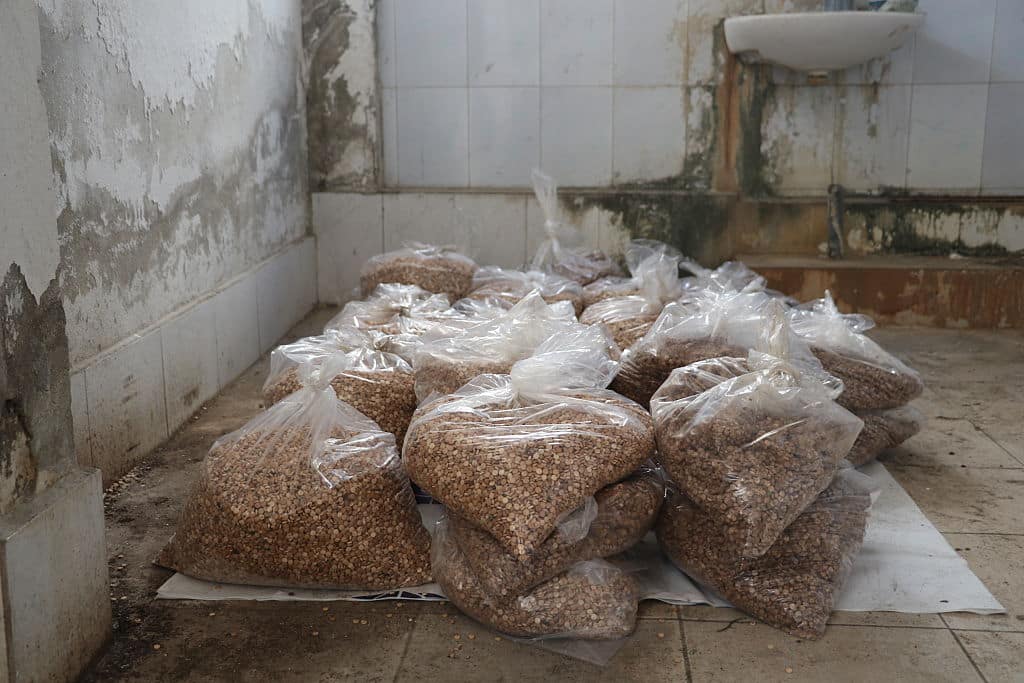
Interim Syrian President Ahmad al-Sharaa pledged to dismantle his country’s massive illegal drug trade when he took power in December, but the dangerous amphetamine captagon is still flowing.
On September 1, Jordanian security forces announced that they “foiled two large-scale drug-smuggling attempts along the country’s eastern border [with Syria].” In August, Jordanian authorities intercepted at least 10 drug shipments, a significant increase from previous months.
Captagon Has Long Meant Big Business in Syria
Under deposed leader Bashar al-Assad, Syria emerged as a significant hub for the production and trafficking of captagon. The trade ballooned into a $10 billion industry during the country’s civil war, with the government directly involved. The money the Assads made served as a critical financial lifeline for a regime under crushing sanctions. But captagon was never purely the province of the Assad government; it thrived through a web operating across Syria, primarily in the border regions. Players included regime-linked actors, criminal families, and smugglers, many of whom Damascus failed to hold accountable after Assad fell.
Captagon Kingpins Still at Large
Sharaa’s forces cracked down on the factories tied to the Assad military’s elite Fourth Division and Bashar’s brother Maher. But the new government has disregarded other captagon kingpins, leaving them to operate in the Daraa governorate, bordering Jordan. One of the drug bosses is Imad Abu Zureiq, whom Washington sanctioned in 2023 for using his militia to “sell contraband, operate protection rackets, and smuggle drugs into Jordan.” Sharaa met with Abu Zureiq in December, along with other militia leaders, to discuss his role in the new government. Instead, Sharaa should have arrested him for taking part in the illicit trade. Other drug lords have also remained untouched by the new government.
Southern Syria’s Chaos Fuels the Trade
The lawlessness of Syria’s border regions, particularly in the south, has contributed to the free flow of captagon. The Syrian government has struggled to maintain a stable presence in both Daraa and the predominantly Druze province of Suwayda. In Daraa, local armed factions resisted integration into the state until April. Further complicating any interdiction efforts, Israel has issued an order prohibiting Syrian forces from operating in southern Syria.
Drug smugglers in Suwayda have also taken advantage of the lack of state control in the region. In at least one case, nothing seems to have changed. According to one investigative report, members of the Mazhar family of Suwayda, once linked to the Assad regime, still “run a captagon factory seven kilometers from their neighborhood and are actively involved in trafficking.”
In July, clashes between government forces, Druze militias, and Bedouin tribes in Suwayda left more than a thousand people dead and no single authority over the area. Between August 1 and September 2, Jordan intercepted 150 percent more smuggling attempts from Syria than in the previous month.
U.S. Should Keep Pressure on Captagon Networks
Captagon continues to flood the Middle East, and while the Syrian government has dismantled production facilities linked to the Assad regime to curb the trade, Damascus is far from eliminating it.
When President Donald Trump lifted most sanctions on Syria in June, the restrictions on drug traffickers remained. While the administration has emphasized engagement with Syria’s current government, there also needs to be accountability. Washington should warn Damascus that relations will suffer if captagon kingpins play a role in Sharaa’s government. And the United States should be ready with new sanctions on narco-traffickers if they are allowed to flourish.
